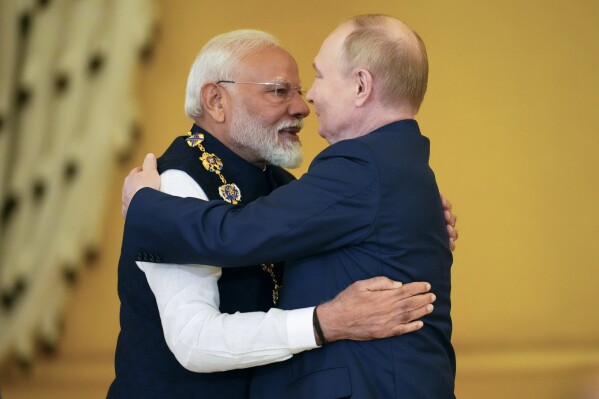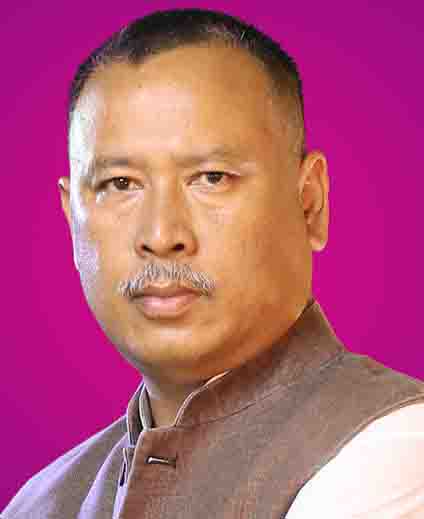First hundred days of Modi 3.0 ended on 17 September last, coinciding with the 74th birthday of Indian Prime Minister Mr. Narendra Damodardas Modi.
Acclaimed by many including international media as Global Peacemaker for his diplomatic initiatives in ending Russia-Ukraine conflict, Narendra Modi is now labelled as one of the most powerful and popular global leaders. India under him is adjudged 4th most powerful country in military strength next only to United States, Russia and China. Back home, one of the longest serving Prime Ministers of the country has failed to pacify the burning Manipur in the north eastern corner of India. The NDA leader has remained a mute spectator to the 16-month-old Manipur crisis, that has so far killed hundreds and displaced thousands of Indian citizens. In the same manner, all ruling legislators of Manipur particularly of the ruling brigade have failed to awaken the Prime Minister, most probably due to the disunity within. Apparent deliberate mishandling of the crisis by the union and the state governments since May last year has turned the situation from bad to worst.
Interestingly, resolution of Manipur crisis was part of the 100-day plan of the National Democratic Alliance (NDA) government under the most powerful BJP Prime Minister, who has been in the mute-mode for over a year. 100-day period expired, but peace still remains a far cry in Manipur. As everyone knows, every conflict settles with political action, and role of political leadership is unquestionable in the resolution of Manipur crisis. However sadly, no effective political initiative to end the mayhem has been seen. Confusions and confusions linger in the minds of many, particularly the ones most affected by the conflict. Series of probable political actions are yet to be taken up for obvious reasons.
One, ten legislators of Manipur either belonging to the ruling political party (BJP) or its supporters including two cabinet ministers of the state have openly instigated violence between two communities in Manipur. During the course of demanding separate administration for their ethnic communities, hundreds of innocent Indian citizens have been killed, thousands displaced, crores of properties destroyed. A number of Indian youths have remained untraced. Still, neither the Centre nor the BJP has taken any political action against these legislators. Why is the Indian Prime Minister remaining a silent spectator to all these mischiefs on the part of his partymen ?
Two, the twists and turns during the course of the ongoing conflict in Manipur have clearly established that it is not a mere communal conflict but a form of external aggression. Even the External Affairs Minister has earlier voiced the foreign aggression narrative. Various political analysts and military personalities have pointed out global intervention in the ongoing turmoil. Recent drone bombings and rocket attacks from the hills towards the valley people have decoded the involvement of foreign aides in this war. Why is Indian Prime Minister still tolerating terrorism and violence perpetrated by foreign-aided militants inside the territory of India ?
Three, by taking away the unified command authority from the state Chief Minister, the Centre has stripped off the state government of its responsibilities and authority to maintain law and order, which is a state subject under the Constitution of India. The Indian leadership has apparently placed a powerless Chief Minister, who was described once by the Union Home Minister as loyal and cooperating to the Centre, only to act as a shield against impending public outcry on the central government. Instead of activating the state government in order to bring solution to the crisis, the Prime Minister has depowered the state government and centralised the authority in contravention to the centre-state power sharing structure defined by the constitution of India. If there is necessity for centralisation of authority in resolving the issue, the Centre could formally implement Article 365 of the constitution. Why is the Indian leadership keeping Manipur in chaos and confusion ?
Four, not a single political initiative has been taken up for conflict resolution in Manipur during the past one and half year. Manipur has a BJP majority dispensation, in which 55 out of 60 legislators are either BJP or its supporters. Interestingly, ten legislators demanding separate administration and revolting against the state BJP dispensation are all belonging to the BJP family. More interesting is that remaining 45 MLAs excluding the 5 MLAs of Indian National Congress can never have a United Voice to resolve the Manipur crisis, as evidenced by the series of inherent internal conflicts within the ruling party in Manipur. It is as if the apparent disunity among the BJP legislators in the state has helped prolonged the silence of the Indian Prime Minister over the Manipur crisis. Whenever there is a strong and united voice of all ruling legislators to resolve the crisis, the Centre would immediately respond with its effective political actions. Will the Prime Minister still remain silent when 45 ruling legislators unitedly place an ultimatum to end the war ?
Five, Article 163 (1) of Indian Constitution says ‘there shall be a Council of Ministers with the Chief Minister as the head to aid and advise the Governor in the exercise of his functions ….’. Surprisingly, in a recent meeting with the Governor of Manipur, the Chief Minister along with some of his ministers and MLAs submitted a charter of demands including handing over unified command authority to the Chief Minister among others. Instead of advising the Governor of the state for implementing important decisions of the Council of Ministers, the Chief Minister places demands on the Governor, thereby apparently belittling the power of the Chief Minister of a state. Has the Indian Premier centralised all powers of Manipur state through the office of the Governor ?
Six, a number of civil organisations and militant groups under SoO agreement have directly involved in the violence and crimes against innocent Indian citizens residing particularly in the Manipur valley, besides resorting to blockade of lifeline highways. Has the Centre taken any action against any civil organisations or militant groups known to have committed such crimes ? Why it has not banned bodies like the ITLF and CoTU for their criminal activities during the past 16 months ? Why the controversial SoO agreement has not been abrogated in spite of reported violations ?
The Manipur crisis could obviously be resolved only with an effective political action of the central government. Has the global peacemaker Narendra Modi failed to act in Manipur situation ? In order to save the Indian territory from being attacked by foreign forces, and in order to save the lives and properties of Indian citizens residing in Manipur state, the Indian Prime Minister must act. So called people’s representatives in Manipur, specially of the ruling party must raise a united voice to woo the central leadership to bring an end to the crisis before it is too late.












